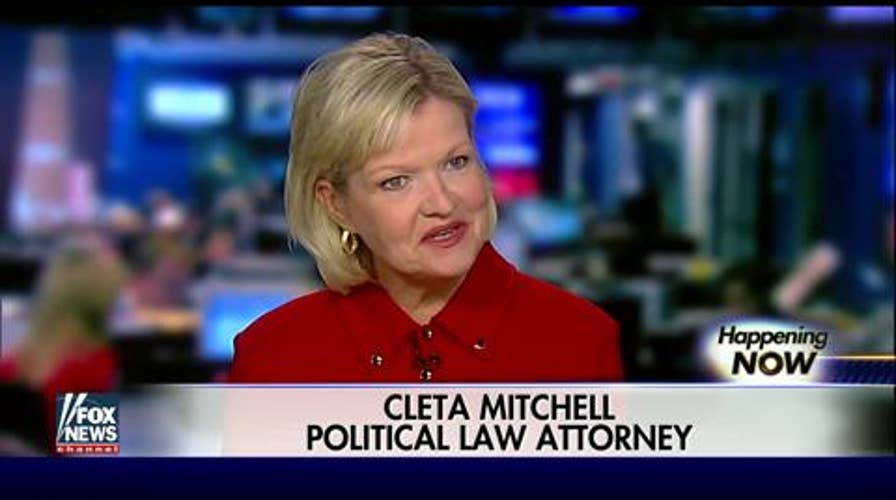IRS proposes new rule to track charitable donations
Proposal would require charities to collect personal data from donors
The Internal Revenue Service (IRS) – the same agency that unlawfully targeted conservative and Tea Party groups – now wants to broaden its assault on taxpayers – specifically nonprofit organizations.
Under a new regulation proposed by the IRS, the tax agency would have some nonprofit charities report the Social Security numbers (SSNs) of donors giving at least $250 in one year. The regulation would permit, but not require, charitable organizations to file a new, separate information return (in addition to the Form 990) to substantiate covered contributions. The new informational return would require the charity to collect an individual donor’s name, address, and Social Security number, and provide a copy to the donor.
We have filed public comments with the IRS opposing this new regulation. It’s a bad idea for a number of reasons. Here are three:
1. On its website, the IRS advises consumers and taxpayers to provide their SSN (or TIN) only when “absolutely necessary.” Even as a voluntary system, the proposed regulations essentially require charities to ask donors to give out their SSNs when it is not absolutely necessary. Voluntary and “absolutely necessary” are diametrically opposed to each other and the IRS should not create a system which provides such inconsistent advice. Doing so undermines consumer and taxpayer protections, and erodes public confidence in both charities and the IRS.
Nearly 35,000 comments have been submitted to the IRS about the proposed regulation – most of them appear to be in opposition to the new rule. We know that public comment does make a difference.
2. Requests for SSNs are likely to result in reduced charitable giving. When confronted with requests for SSNs for contributions exceeding $250, donors will logically be unwilling to contribute more than $250.
3. Concerns about identity theft are very real and a significant reason this new regulation should not be adopted. Just this year, hackers have accessed sensitive employee data at the federal Office of Personnel Management (OPM) and the Central Intelligence Agency (CIA), two sophisticated organizations with the resources to protect against identity theft and sensitive information. Hackers were nevertheless able to breach their fire-walls and steal the information of millions of federal employees and contractors. If OPM and the CIA (among countless other governmental and private organizations) cannot protect against such security breaches and theft, it seems particularly ill-advised to set up a system that has charities collecting, storing, and (hopefully) protecting SSNs.
Further, the IRS acknowledged in its notice, the present system “works effectively, with minimal burden on donors and donees.” That being the case, there seems little need to create a new, optional, parallel reporting regime that would implement additional administrative burdens on charities.
And, don’t be fooled by the tax agency’s assertion that this new regulation simply would be “voluntary” – not mandatory. As the Wall Street Journal points out, this is really just another tactic for the IRS to get a foot in the door:
“While the IRS says the rule is ‘voluntary,’ in government that’s often a prelude to compulsory. The legitimate fear in the nonprofit world, on the right and left, is that this is a first step toward making such donor lists mandatory, and then applying the requirement to every nonprofit—including the conservative social-welfare organizations that the IRS helped to shut down in the 2012 presidential election.”
That is absolutely correct.
In fact, we’re still in litigation against the IRS – representing dozens of conservative and Tea Party groups who were unconstitutionally singled out by the IRS because of their conservative beliefs. Even though this targeting scandal was revealed years ago, the IRS continues its targeting.
Of the 38 clients we currently represent, two are still awaiting a response from the IRS on their applications -- Albuquerque Tea Party has been waiting six years and Unite in Action has been waiting for more than three years.
Nearly 35,000 comments have been submitted to the IRS about the proposed regulation – most of them appear to be in opposition to the new rule. We know that public comment does make a difference. According to the Wall Street Journal, this year “the IRS was forced by public outrage to shelve a different regulation that sought to limit the amount of political activity social-welfare organizations can engage in.”
Whether or not the IRS enacts this badly flawed regulation remains to be seen. But some in Congress aren’t taking any chances. There’s already legislation that’s been introduced to stop this abusive rule.
Kansas Republican Sen. Pat Roberts introduced a bill designed to block implementation of the measure. “This rule is ridiculous,” said Sen. Roberts. “They have already proven that the IRS itself can’t safeguard personal and private information from abuse.”
The IRS is corrupt. The IRS is abusive. The IRS is untrustworthy. The bottom line: the IRS should not be permitted to launch this Social Security number acquisition scheme.









































